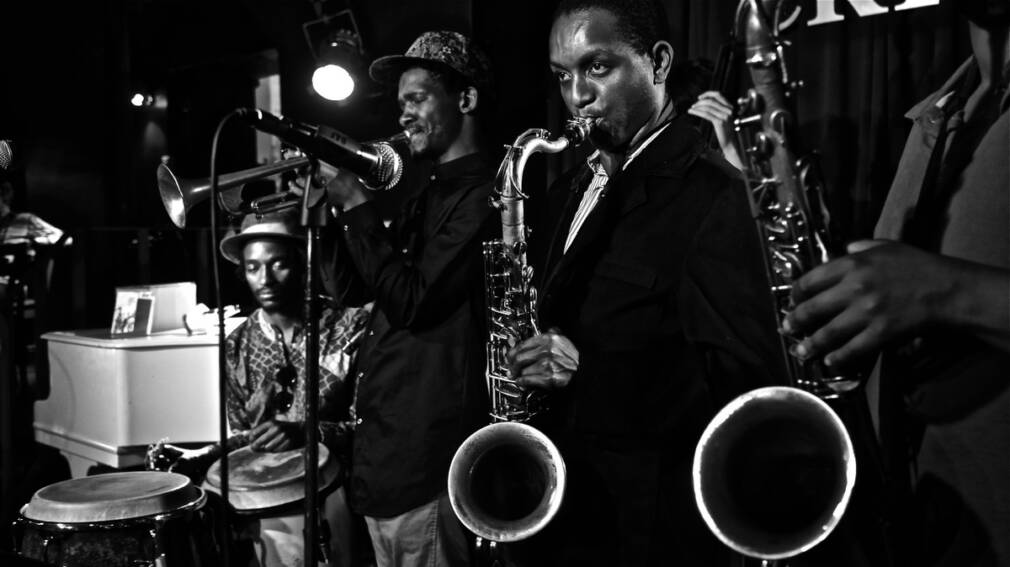Early this May, the Johannesburg-based performance outfit The Brother Moves On embarked on a tour to Cape Town where they played three shows in three very different settings. The second of those dates fell on a Saturday, May 6th, at an art studio bordering Woodstock and Salt River. The daytime party that turned into a full-blown live music extravaganza when darkness crept brought two schools of live music under a single roof, with the exciting Kujenga bringing their musical juice to home turf. The audience, comprising a fair balance of old and new fans, as well as the truly curious appreciators of culture, packed the warehouse-sized studio, a shared space housing acclaimed artists like host Breeze Yoko.
A more symbolic event was happening beneath it all — a passing of the torch from one school to the next, an induction, a ceremony. The Brother Moves On were breaking proverbial bread with the fairly new Kujenga cats, welcoming them into the live band tradition that houses black and brown kids across South Africa whose allegiance to jazz, rock, roots, and the abundant styles and traditions that have informed live music from time immemorial goes without question.
It’s as exciting a time as any other to be a musician. Venues have gone from dwindling to near-extinct, and support from the private, public and NGO sectors is at an all-time low, comparatively. The prevailing conditions are changing the look and feel of how music is presented and consumed. People’s backyards and living rooms are providing an alternative source of income; a means to finance the various wants and needs of working musicians. The socio-political situation is dire, spurred on by global shifts in cultural production and the systemic, undulating North-South imbalance that keeps African states in a perpetual cycle of want.
In all of this, with the hangover of losses experienced from the pandemic an ever-present reality, artists are creating. It’s as though the tougher conditions get, the meaner the music becomes. South African Jazz is as expansive as ever, and we’ve brought this selection of delicate blends for you to sample. The rest of the releases between January and June can be found on this playlist.
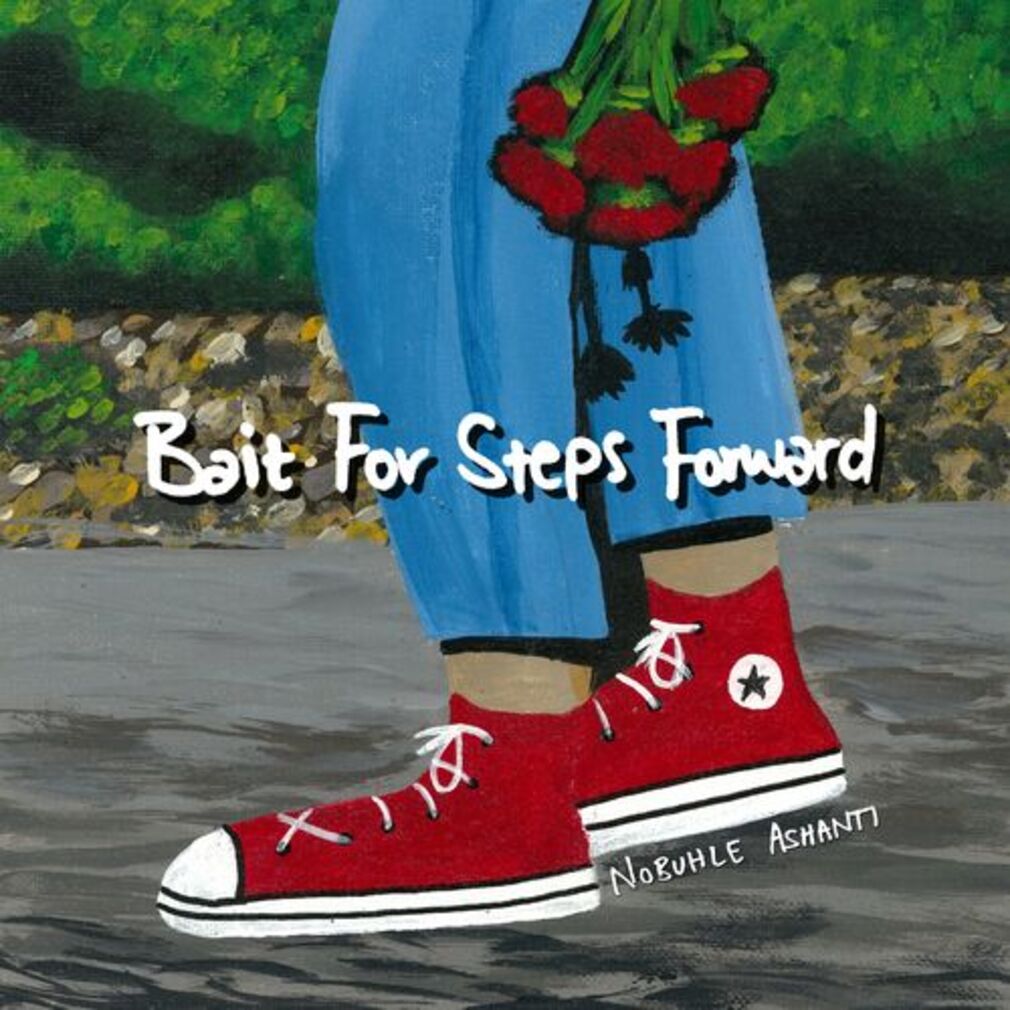
Bait For Steps Forward
Nobuhle Ashanti
The pianist and composer presents a suite that is steeped in the “Cape Jazz” tradition. It draws from ideas introduced by masters like Basil Coetzee and Robbie Jansen while curating fitting vocal features whose various textures accentuate Nobuhle’s outstanding arrangements. Speaking about the process of choosing collaborators for her debut, released via Platoon this past March, Nobuhle says that she resists the temptation to search for players, and instead searches for people with a shared vision. “I always look at a person and I’m like, can I have a conversation with you? Do you intrigue me? Do I wanna learn from you? That always helps as a foundation in terms of getting to work with someone, for me. My band is my safe space, it’s my little tribe, it’s my home, and I wanna make it a home for the right people.”
Listen here.
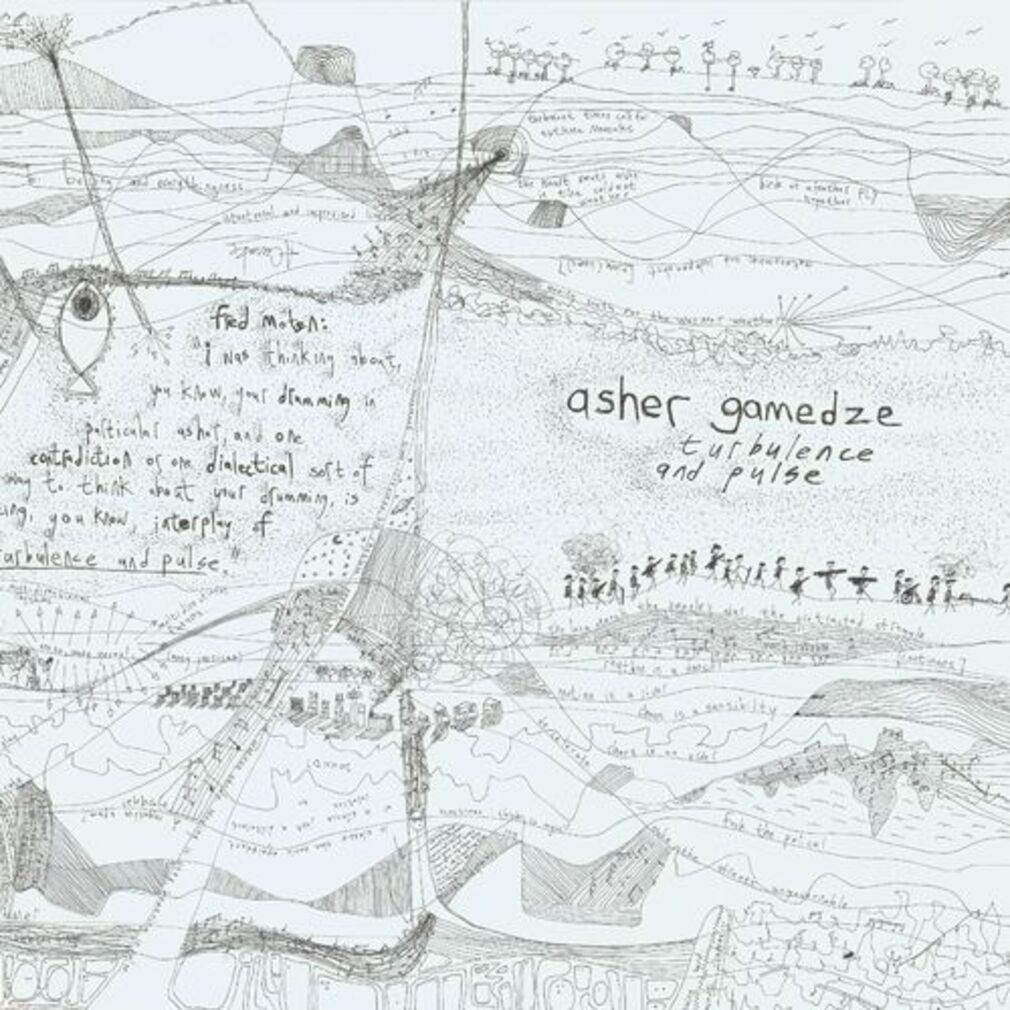
Turbulence and Pulse
Asher Gamedze
Drummer Asher Gamedze’s sophomore picks up where the first one left off, and it’s, as usual, a journey of abundant learning through memory and experimentation. Gamedze’s from a band tradition that spans rock, folk and hip hop, and he combines all of that knowledge with his academic practice and an undying empathy for the working class to produce prolific pieces of music that harken times past and speak to futures unknown. A joint effort between the Joburg-based Mushroom Hour and Chicago’s International Anthem, Turbulence and Pulse is an international affair that at once resists categorisation while searching and finding bold sonic languages to reference its predecessors. Launched in Johannesburg this past May, the work builds upon a drummer tradition that has seen the likes of bra Louis Moholo, Tumi Mogorosi, Ayanda Sikade leave footprints that will endure across generations.
Listen here.

Intwasa: The Becoming
Robin Fassie
Having risen to prominence through his inspired takes on Nduduzo Makhathini’s Listening to the Ground (2015), Robin Fassie went on a collaborative spree that has seen him work with all names worth paying attention to from South Africa to Norway where he studied, and where the musicians he gathered to record this album are from. Daring, delightful, beatific and challenging, Intwaso: The Becoming begs the listener to break free from expectations and fully immerse themselves in the lush, abundant selections on offer. “[This] is an album centred around growth and the journey that comes along with it,” says the trumpeter. “Intlungu Nenhlupheko” is a spirited letter of encouragement to the dispossessed; “A.P’s Lament” a gesture of appreciation for a fallen hero, the pianist and composer Andre Petersen; while “Letter to Cecil Rhodes” is a sonic redress, an attempt at soothing the wounds left behind to fester by heartless oppressors like the song’s namesake.
Listen here.

Azania
Iphupho L’ka Biko
The outfit, led by the incomparable bassist and composer Nhlanhla Ngqaqu, are a product of the political turmoil that has enshrouded student activity in South Africa for generations, and which had their latest mass explosion during the 2015 and 2016 student protests coined #FeesMustFall, where a collective voice comprising students and revolutionary faculty demanded a free and decolonised education for all. Iphupho have made a significant dent to political life in South Africa through their music and their message, rooted in the pan-Africanist teachings of elders such as Winnie Mandela, Robert Sobukwe, and Steve Biko. With this, their first EP, they present a set of songs which shall doubtless leave their legion of supporters in awe, but fare lesser when it comes to attracting a new audience – though this remains to be seen. Songs such as “uThixo uKhona”, a firm favourite during live shows; as well as “Qamata” reignite the socio-political importance of black and brown live band culture in South Africa, yet do little to demonstrate the full range of the collective. Missing are the voices of acclaimed soprano singer Miseka Gaqa, as well as the emotive, powerful range of Pulane Mafatshe. This, says Ngaqu, is the missing ground that shall be covered by subsequent releases.
Listen here.
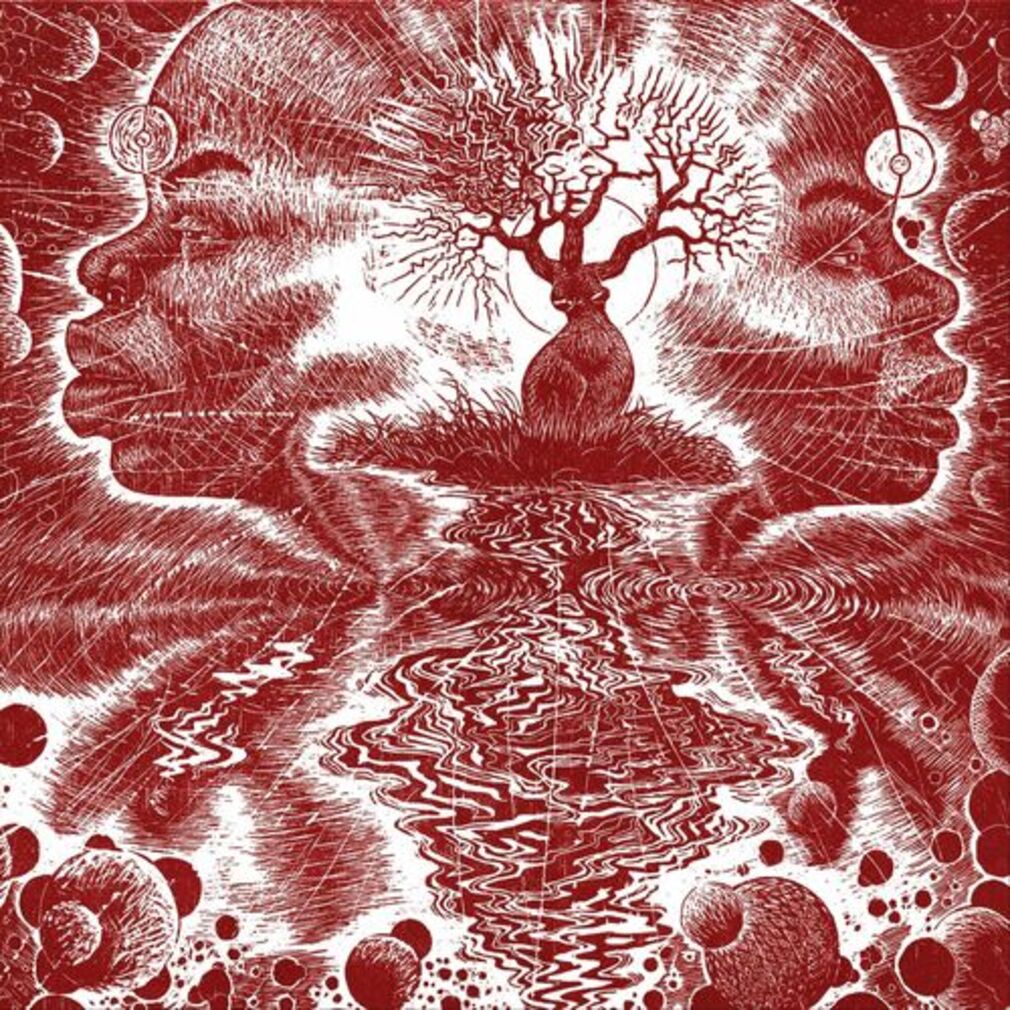
Oratorio of a Forgotten Youth
Amandla Freedom Ensemble
Mandla Mlangeni’s Amandla Freedom Ensemble has outpaced naysayers and consistently captivated the imagination over its many iterations. Inspired by the work of greats like bra Jonas Gwangwa, whose own Amandla Cultural Ensemble did important political work during the long drawn-out struggle for self-determination that South Africa went through, the Freedom Ensemble’s significance to the South African jazz tradition cannot be downplayed. Their latest album, a “musical reflection on the 1976 student protests and the #FeesMustFall movement”, is the most daring yet, and combines jazz, Classical and indigenous music with theatre and poetry to ferment a taste inextricably linked to the land of its birth. This is one of the most outstanding albums to have emerged from Mzansi this year.
Listen here.

Radio Sechaba
Bokani Dyer
It was Nina Simone’s quote regarding the role of the artist that set forth the accomplished pianist and composer on the quest to explore how he is contributing to the socio-political discourse through his music. The son of musician Steve Dyer, who has produced some of Oliver Mtukudzi’s most outstanding hits, Bokani is the archetypal child of the struggle. He recognises that he is inextricably linked to a past that valued the role of artists, and he moves like it over the course of Radio Sechaba’s fourteen songs. “Be Where You Are” is a lullaby for the anxious; “Mogaetsho” admonishes the crass, power-hungry ruling class under whose watch people suffer immeasurable injustices; and “Tiya Mowa” breathes life into the collapsed lungs of those who’ve suffered for too long. This compact collection is necessary. The songs speak to Bokani’s daring spirit, and are as much a compendium to the modern day jazz head as they are to general lovers of music. Impeccable!
Listen here.
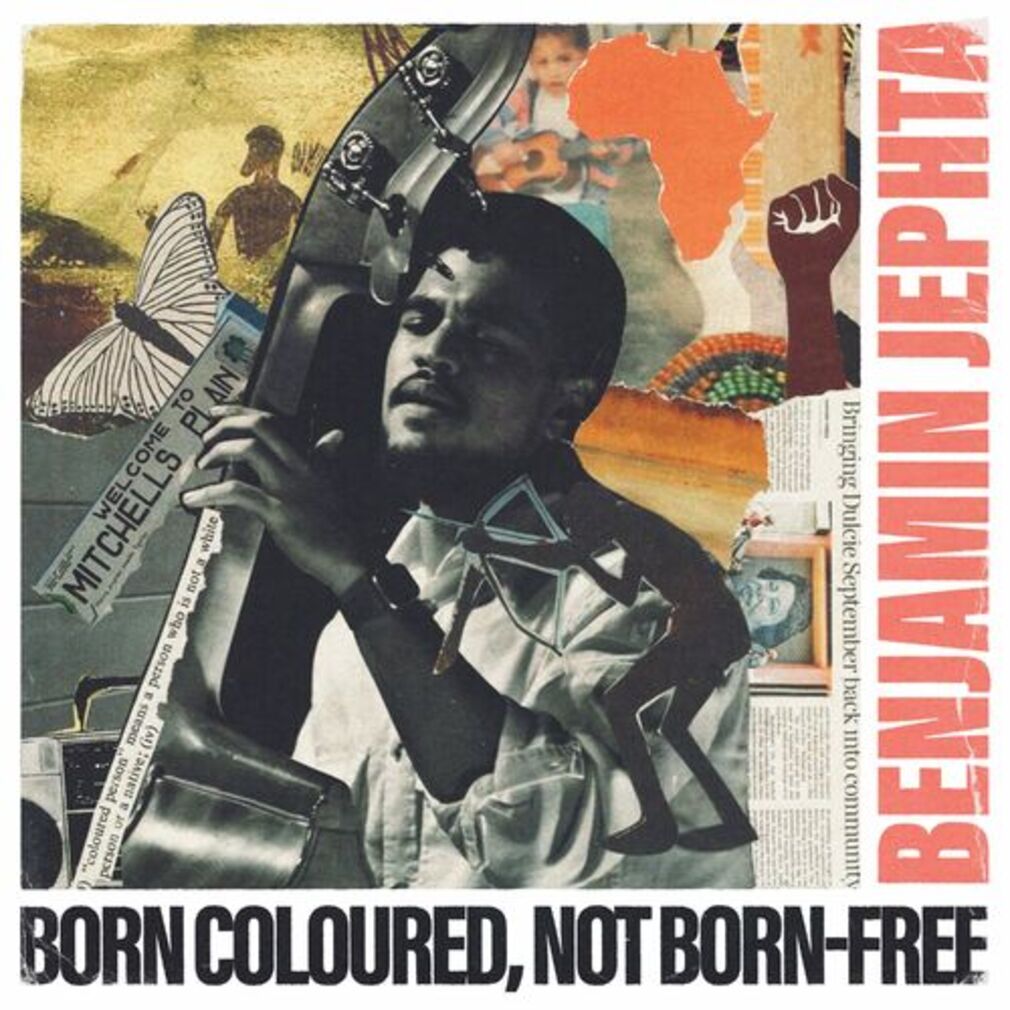
Born Coloured, Not Born Free
Benjamin Jephta
Benjamin Jephta’s third outing continues the identity theme that has underscored his previous efforts. This one is the boldest statement yet: a proclamation of un-belonging, a search for belonging, a quest to quench the thirst for recognition. “Coloured” people have gone from one extreme to the next, with every political nexus swaying thus-defined people in wild ways. Essentially, freedom and statehood are conditioned for “Coloureds”, belonging hangs by the thread, and public perception of coloured identity, fuelled mainly by an uncaring media landscape, is a negative and debilitating one. Through his music, and through his cultural and academic work, Benjamin Jephta seeks to interrogate these narrow descriptions, and orchestrates a protest that feels modern in how it’s made manifest. “Born Free” is also terminology used to describe the era born post-’94, the year South Africa’s first democratically-elected president was ordained.
Listen here.
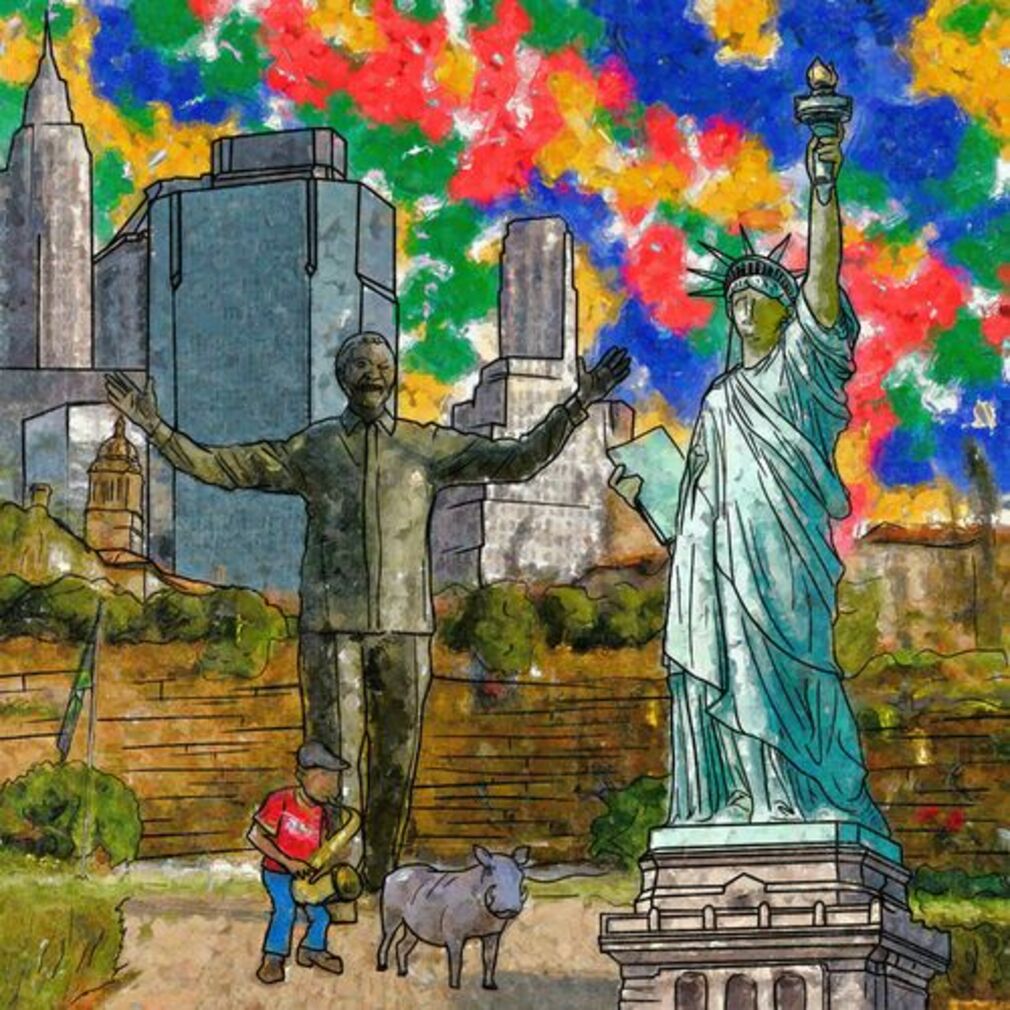
The Crossover II
Jazzgroupiez and Saul Madiope
US-based Jazzgroupiez and Saul Madiope, based in South Africa, have made outstanding music since their first outing in 2020. The two have never met, but the product they make sounds as though they spent endless days making certified classics in the lab. They reach out to an ever-expanding network of collaborators on their sophomore, a decision that serves to grow them outside of the narrow confines of “jazz”, and places them in the same class as Emamkay (who features with Bokang Ramatlapeng on “Rise”), and N-Lite. They make delightful jazz music fit for consumption by an R&B- and hip-hop-aware audience. The self-affirming “Be” utilises the talents of Nyota Parker and Flvme, “Take Me High” finds R&B artist Joda Kgosi trading pipes with frequent Saul Madiope collaborator ThandoNje and the talents of Tyson Sybateli, Tron Pyre and Dislu catch a heavy wave on the aspirational “Get This Money”.
Listen here.
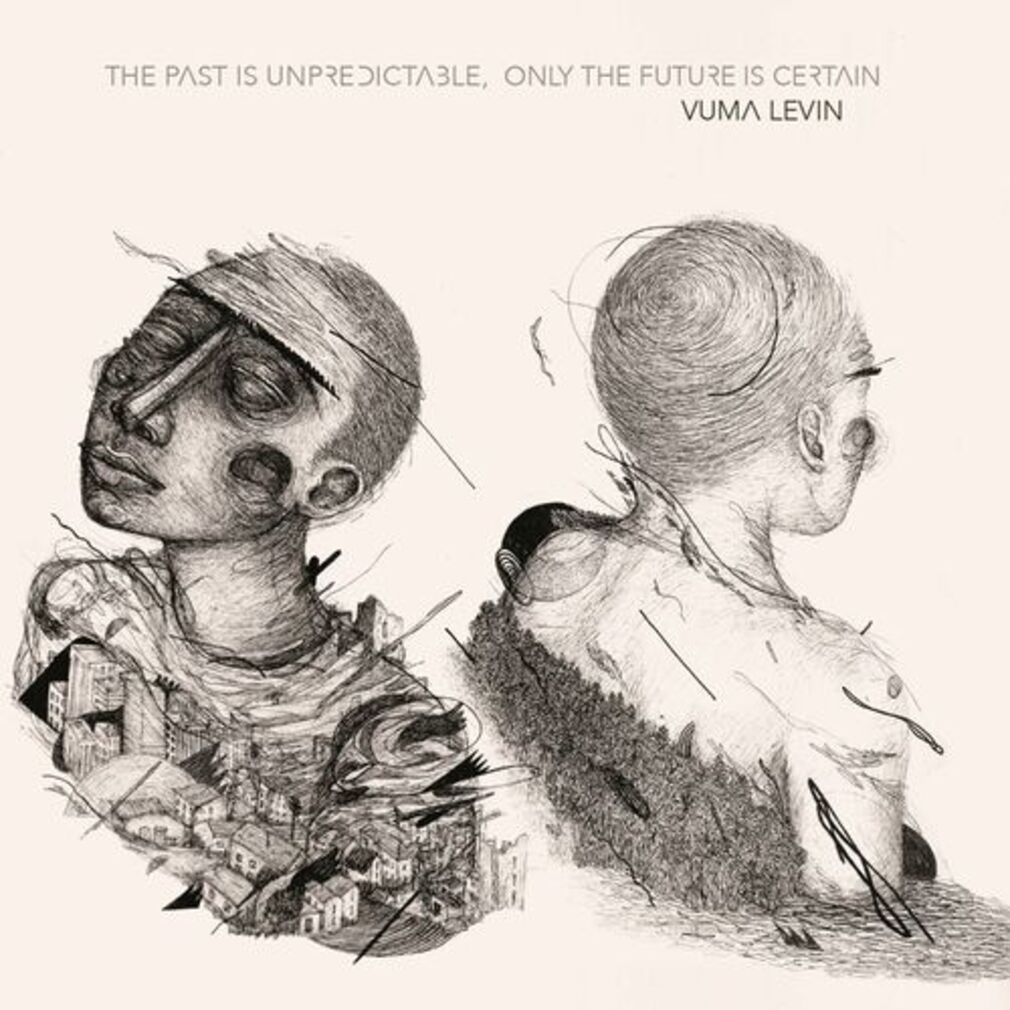
The Past Is Unpredictable, Only the Future Is Certain
Vuma Levin
This album is the result of a two-year-long process that started when the guitarist and composer was named Standard Bank’s Young Artist for Jazz in 2021. Affirming and assured, with an unabashed leaning towards uplifting melodies, The Past… challenges established notions of identity and belonging, and complicates the question of tradition as well as the imposed expectations to cling to it. Which past matters, and which futures get a pass, he seems to ask. “Capela” is guided meditation, lead single “Yaka Yaka” an homage to vintage funk as expressed by elders such as the late Madosini and youngins like Dumama and Thandeka Mfinyongo, “Homily” corrupts Classical music flourishes through de-contextualising them and “Gijima” is gently experimental in how it fuses traditional styles of compositions with human-machine connections facilitated by the Vuma’s guitar pedal. “This album is a great summary of everything that I’ve been trying to do musically for the past decade, while also pointing to the possibilities of what I can do in the future,” he said in an interview leading up to the album’s release. This entire joint is a musical tour de force.
Listen here.

Ngo Ma
IzangoMa
Sbusile Xaba, chiefly known for his solo work as a folk artist, sounds delightful on this Afro-electric quest alongside collaborator Ashley Kgabo. The fellow architects and active contributors to Pretoria’s ever-evolving live music scene go off on spirited, inspired tangents on this eleven-track offering released through Brownswood Recordings. They manufacture timestamps to earmark a period of unabashed creativity in South Africa – a period marked by social upheavals that are a direct result of the Neo-Capitalist project. “Tribute to Johnny Dyani” is a distress signal and hat-tip to a South African jazz great; “Mngungundlovu” the audio equivalent of voices collected throughout kingdoms; and “Agenda Remember” a middle finger to the strait-jacketed social norms of life today. We can’t wait to see what they’ve got coming next.
Listen here.
